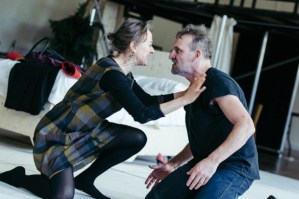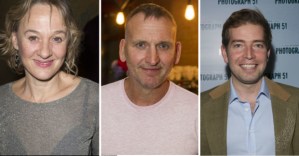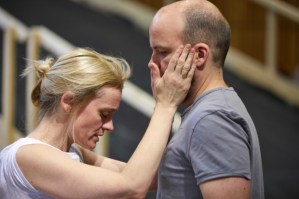Re-inventing Macbeth: why staging the play is notoriously difficult
As she sees a host of new ”Macbeths”, Sarah Crompton looks over the last few decades of watching Shakespeare’s bloody tragedy
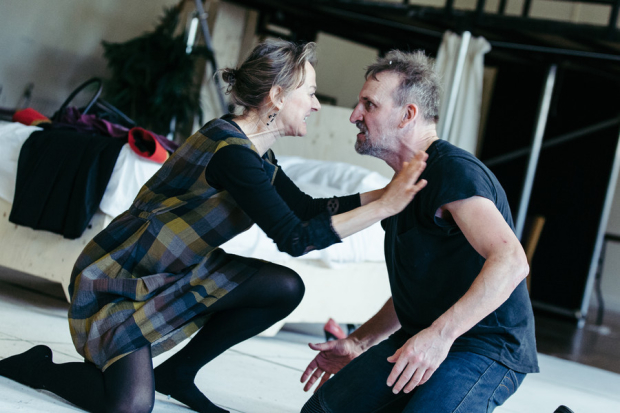
© Sophie Teasdale/RSC
Sometimes when you look at something from a different angle you see it in a new light. That happened to me when I watched Mark Bruce’s dance version of Macbeth at Wilton’s Music Hall last week. Bruce is a master of telling stories in movement: the Oresteia and Dracula held no terrors for him.
Macbeth, a play of darkness and turmoil, should be perfect for him. Yet boiled down, without the words, Shakespeare becomes a series of battles and anguished duets with a bit of murder thrown in on the side. And a high severed head count. It is wonderfully done, with atmospheric dark designs, and punky witches, and in the central role Jonathan Goddard – one of the greatest contemporary dancers – is riveting. But it bears little resemblance to a play that I love to read.
This, broadly speaking, accounts for my experience of watching Macbeth. Its gothic horror elements – witches, ghosts, blood and gore – so often overwhelm its psychological acuity, its frightening portrayal of mental and moral collapse. On stage, it can seem silly when, on the page, it never does.
It is the escalation of terror that makes Macbeth so difficult to perform
I have seen Macbeth on stage 11 times in my life. In the next fortnight the total will rack up to 13 as I add to my tally the new productions at the National Theatre (directed by Rufus Norris and starring Rory Kinnear and Anne-Marie Duff) and the RSC (starring Christopher Eccleston and Niamh Cusack and directed by Polly Findlay). I am excited but also apprehensive at the prospect.
Sadly, it is the notoriously bad productions of Macbeth that stick most strongly in my mind. It’s hard to banish the image of Peter O’Toole prancing around the stage in what has become branded as one of the worst versions of all time. He appeared drunk; I don’t know if he was. But I do know that he was no-one’s idea of Macbeth, seeming to have wandered on from a panto. What was awful was the way the audience laughed; this was Macbeth as broad comedy.
But even more coherent productions struggle. No wonder actors are superstitious about the play. It can put a hiccough in many a brilliant career. A case in point is Mark Rylance’s insane turn as the Thane in 1996, in a production that transposed the action from historic Scotland to a contemporary cult religion. It was critically excoriated and became notorious for the way Jane Horrocks peed on stage each night in the sleep walking scene. I felt there were things to admire, not least Rylance’s way with the soliloquies, but my husband left to sit in the car at the interval, unable to bear its sheer oddity anymore.
I wish I’d done the same in Rufus Sewell’s much more traditional reading that brought Shakespeare to Shaftesbury Avenue in 1990 and turned it into a wooden shout-fest, that plodded from event to event. "It can’t get worse," said my friend Susan as she persuaded me to return for the second half. It could and it did. Sally Dexter was good though but Sewell, I note, has never performed Shakespeare on stage again. Which is a pity.
Macbeth is undoubtedly a play that speaks loudly to an age filled with the intractable horror of the Syrian conflict
But I have also witnessed productions that have been compelling, including one starring Simon Russell Beale with Emma Fielding as his wife and a very young Tom Burke as Malcolm at the Almeida in 2005 directed with his usual sensitivity to the text by John Caird. Russell Beale turned Macbeth into an introspective, brooding figure; a lot of critics complained but I find I remember the way he made those monologues so meaningful.
I also liked bluff Denis Quilley and glamorous Diana Rigg in the roles in the National production in 1973, which I think was the first time I saw the play professionally performed. Bernard Hill made a chilling Macbeth in a production directed by Nancy Meckler and the People Show, opposite Julie Walters (amazingly) as Lady M. I can’t, sadly, remember a thing about Jonathan Pryce and Sinead Cusack as the murderous couple in the RSC production I appear to have witnessed in 1987, which is strange because he has always been one of my favourite actors.
Two productions however stand out for the way they brilliantly caught the play’s profoundly unsettling portrayal of evil and the harm men do to themselves. One was directed by Richard Eyre at the National Theatre in 1993, where Alan Howard played a ferocious Macbeth, murderous from the start, consumed by his own ambition and hate. Anastasia Hille was memorable too as an austere and conniving Lady M.
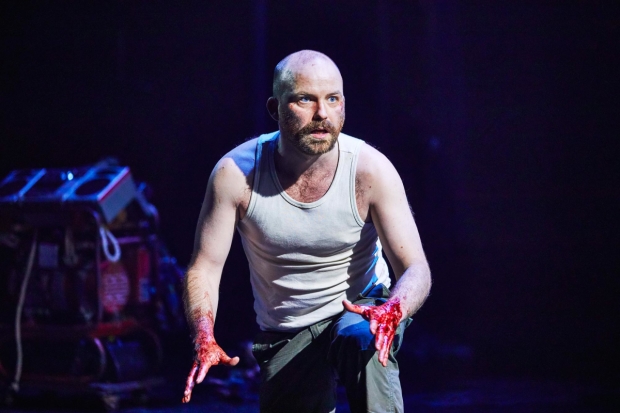
© Brinkhoff-Moegenburg
The other was the radical re-envisioning of the play by Rupert Goold in 2007. It seemed to be set in an abattoir, that was gradually and graphically filled with blood and in this white-tiled space Patrick Stewart transformed himself from bluff, respectable soldier to Soviet-style tyrant with horrifying and frightening repercussions; Kate Fleetwood was a devastatingly powerful Lady Macbeth.
It is this escalation of terror that makes Macbeth so difficult to perform I think. That and the fact that its poetry, full of the images of darkness and light, is so evocative that anything you actually see can fade in comparison. Yet with its depiction of the bloody horrors that can ensue when a man decides to solve the problems he faces with act after act of violence, it is undoubtedly a play that speaks loudly to an age where the intractable horror of the Syrian conflict fills our TV news each night. I shall be fascinated to see whether these new productions can make it a play for today.
Macbeth opens at the National Theatre on Wednesday; at the RSC on March 20. Mark Bruce’s Macbeth is now on tour.


